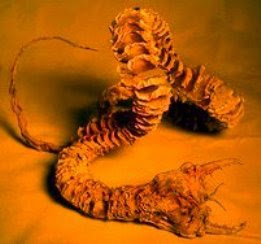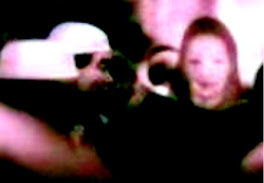To hold him who has taught me this art as equal to my parents and to live my life in partnership with him, and if he is in need of money to give him a share of mine, and to regard his offspring as equal to my brothers in male lineage and to teach them this art - if they desire to learn it - without fee and covenant; to give a share of precepts and oral instruction and all the other learning to my sons and to the sons of him who has instructed me and to pupils who have signed the covenant and have taken an oath according to the medical law, but no one else.
I will apply dietetic measures for the benefit of the sick according to my ability and judgment; I will keep them from harm and injustice.
I will neither give a deadly drug to anybody who asked for it, nor will I make a suggestion to this effect. Similarly I will not give to a woman an abortive remedy. In purity and holiness I will guard my life and my art.
I will not use the knife, not even on sufferers from stone, but will withdraw in favor of such men as are engaged in this work.
Whatever houses I may visit, I will come for the benefit of the sick, remaining free of all intentional injustice, of all mischief and in particular of sexual relations with both female and male persons, be they free or slaves.
What I may see or hear in the course of the treatment or even outside of the treatment in regard to the life of men, which on no account one must spread abroad, I will keep to myself, holding such things shameful to be spoken about.
If I fulfil this oath and do not violate it, may it be granted to me to enjoy life and art, being honored with fame among all men for all time to come; if I transgress it and swear falsely, may the opposite of all this be my lot.
Translation from the Greek by Ludwig Edelstein. From The Hippocratic Oath: Text, Translation, and Interpretation, by Ludwig Edelstein. Baltimore: Johns Hopkins Press, 1943.
I swear to fulfill, to the best of my ability and judgment, this covenant:
I will respect the hard-won scientific gains of those physicians in whose steps I walk, and gladly share such knowledge as is mine with those who are to follow.
I will apply, for the benefit of the sick, all measures [that] are required, avoiding those twin traps of overtreatment and therapeutic nihilism.
I will remember that there is art to medicine as well as science, and that warmth, sympathy, and understanding may outweigh the surgeon's knife or the chemist's drug.
I will not be ashamed to say "I know not," nor will I fail to call in my colleagues when the skills of another are needed for a patient's recovery.
I will respect the privacy of my patients, for their problems are not disclosed to me that the world may know. Most especially must I tread with care in matters of life and death. If it is given me to save a life, all thanks. But it may also be within my power to take a life; this awesome responsibility must be faced with great humbleness and awareness of my own frailty. Above all, I must not play at God.
I will remember that I do not treat a fever chart, a cancerous growth, but a sick human being, whose illness may affect the person's family and economic stability. My responsibility includes these related problems, if I am to care adequately for the sick.
I will prevent disease whenever I can, for prevention is preferable to cure.
I will remember that I remain a member of society, with special obligations to all my fellow human beings, those sound of mind and body as well as the infirm.
If I do not violate this oath, may I enjoy life and art, respected while I live and remembered with affection thereafter. May I always act so as to preserve the finest traditions of my calling and may I long experience the joy of healing those who seek my help.
Written in 1964 by Louis Lasagna, Academic Dean of the School of Medicine at Tufts University,
and used in many medical schools today.
There is a acute shortage of l,800 specialists in government (public) hospitals throughout
Health Minister Liow Tiong Lai has admitted that government hospitals have to operate with only 50 per cent of their specialist doctor strength.
He said the Ministry of Health needed 3,600 specialists to serve in government hospitals but at present there were only l,800 specialists employed.
"The Health Ministry is concerned over the shortage. It is finding ways to encourage more Malaysian specialists working overseas to return to work in the hospitals," Liow told reporters.
This is not a new phenomena, in has fact it has gradually been getting worse year by year.
What about the large number of Malaysian specialists who are working in the many very expensive private hospitals which have sprung up throughout Malaysia in recent years?
These hospitals are far beyond the reach of a large percentage of Malaysians, I hazard a guess at say 85% or more!
Can some of these specialists not be lured back to serve in public government hospitals?
Specialists from the public sector are currently allowed to work in private hospitals at weekends, why can the private hospital not provide health and medical care to the general public to take the load of the government hospitals?
The public are suffering less than adequate medical and health care due to severe shortage of specialist, doctors, nurses and ancillary health and medical personnel in the public sector.
There are many fine specialists, medical officers and other personnel still serving in the public hospitals, but overall it seems that the government medical services staffing is bottom heavy, and is in some areas possibly overstaffed. The clinical staff, are obviously overworked and are trying to cope with an immense work overload, thus the patients have to suffer long delays and in some cases perhaps less than optimum treatment.
The solution will not be simple, but urgent practical and effective measures need to be taken now, before it is a case of too little too late!
In necessariis unitas, in dubiis libertas, in omnibus caritas
- In necessary things unity, in doubtful things liberty, in all things charity































No comments:
Post a Comment